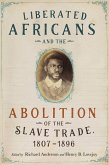The first monograph to treat comprehensively the epoch-making though now too often forgotten scandal that rocked German political culture from 1906 to 1909, now in English translation.
When it broke out in 1906, the scandal surrounding Prince Philipp Eulenburg, closest confidant of Emperor Wilhelm II, shook the Hohenzollern monarchy and all of Europe to the core. Sparked by accusations by the journalist and publicist Maximilian Harden, the scandal dominated European headlines until 1909; it was the first modern scandal in which homosexuality was openly discussed. Particularly shocking was Harden's claim that Wilhelm had long been under the influence of a homosexual camarilla led by Eulenburg. Allegedly, this clique had brought about Bismarck's dismissal, cut off the emperor from his people, and, with its undue pacifism, maneuvered Germany not only into isolation,but to the brink of war during the Morocco Crisis of 1905-6.
The scandal came to be a forum for the German public to debate diverse political, social, and cultural issues: honor, friendship, marriage, privacy, sexual mores,anti-Semitism, spiritualism, class struggle, submission to authority, and enthusiasm for the military. Norman Domeier's book, now in English translation, is the first scholarly monograph on the scandal. It draws on a wealth of primary material, including ca. 5,000 newspaper articles as well as minutes of court trials, private correspondence, government files, pamphlets, diaries, memoirs, and images. Domeier's historical analysis offers fascinating insightsinto the cultural history of German politics in the fateful years of transition from the Belle Époque to the "Iron Age" of the world wars.
Norman Domeier is Assistant Professor at the University of Stuttgart's Historical Institute.
When it broke out in 1906, the scandal surrounding Prince Philipp Eulenburg, closest confidant of Emperor Wilhelm II, shook the Hohenzollern monarchy and all of Europe to the core. Sparked by accusations by the journalist and publicist Maximilian Harden, the scandal dominated European headlines until 1909; it was the first modern scandal in which homosexuality was openly discussed. Particularly shocking was Harden's claim that Wilhelm had long been under the influence of a homosexual camarilla led by Eulenburg. Allegedly, this clique had brought about Bismarck's dismissal, cut off the emperor from his people, and, with its undue pacifism, maneuvered Germany not only into isolation,but to the brink of war during the Morocco Crisis of 1905-6.
The scandal came to be a forum for the German public to debate diverse political, social, and cultural issues: honor, friendship, marriage, privacy, sexual mores,anti-Semitism, spiritualism, class struggle, submission to authority, and enthusiasm for the military. Norman Domeier's book, now in English translation, is the first scholarly monograph on the scandal. It draws on a wealth of primary material, including ca. 5,000 newspaper articles as well as minutes of court trials, private correspondence, government files, pamphlets, diaries, memoirs, and images. Domeier's historical analysis offers fascinating insightsinto the cultural history of German politics in the fateful years of transition from the Belle Époque to the "Iron Age" of the world wars.
Norman Domeier is Assistant Professor at the University of Stuttgart's Historical Institute.
Dieser Download kann aus rechtlichen Gründen nur mit Rechnungsadresse in A, D ausgeliefert werden.









